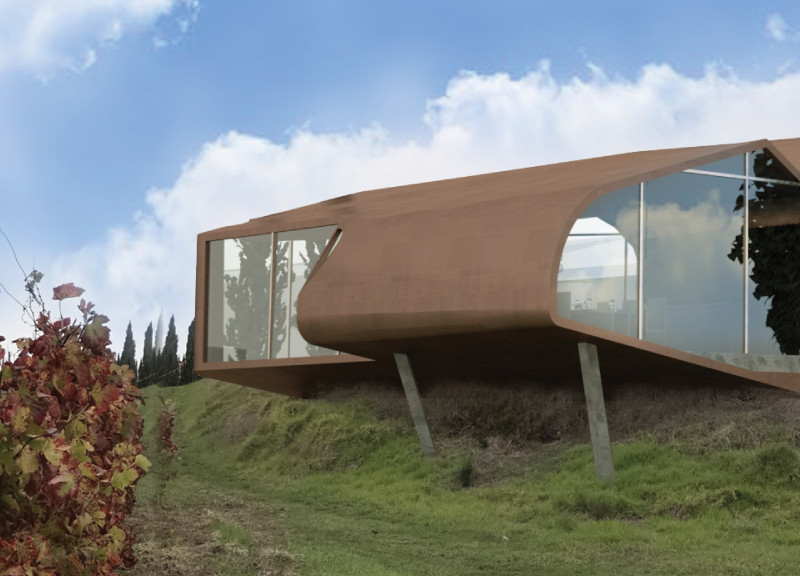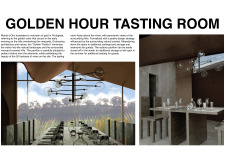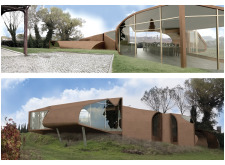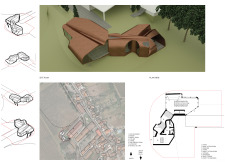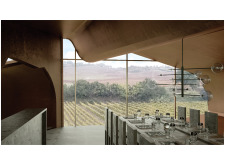5 key facts about this project
The Golden Hour Tasting Room is located in the scenic Monte d'Oiro region of Portugal, where the landscape features rolling hills and extensive vineyards. The project serves as a tasting room that invites visitors to connect with the surrounding environment. By emphasizing light and views, the design captures the essence of the region, particularly during the golden hours of the day. The primary aim is to create an engaging space for wine tasting while respecting and enhancing the natural beauty of the site.
Site Integration
The choice of location for the Golden Pavilion was made with care. Positioned within the 20-hectare vineyard, the pavilion creates a strong link between its structure and the surrounding landscape. This thoughtful placement not only shields visitors from harsh weather but also showcases the picturesque scenery. Being elevated allows for sweeping views of the vineyards, enhancing the overall tasting experience. Visitors feel a sense of connection with the land as they enjoy their surroundings.
Spatial Organization
The layout of the pavilion reflects a design strategy focused on harmony with the natural context. As guests arrive, they move down a set of stairs that lead to functional spaces, including storage and restrooms. This organization maximizes usability while keeping the main structure discreet. The transition from outdoor to indoor is smooth, fostering a relationship between the two environments. This design encourages a flow that invites people to linger and enjoy both the space and the views.
Seasonal Flexibility
A distinctive feature of the outdoor pavilion is its ability to adapt to different seasons. During the colder months, it can be enclosed, allowing for additional storage and protecting guests from the elements. Conversely, in warmer weather, the structure can open to accommodate more visitors. This flexibility not only benefits practical use but also aligns with the natural rhythms of the region. It highlights the thoughtful consideration given to visitor needs throughout the year.
Large openings in the design frame the landscape beautifully, welcoming natural light and creating a warm atmosphere inside. The ability to experience the changing light conditions throughout the day enhances the enjoyment of both the wine and the environment.


